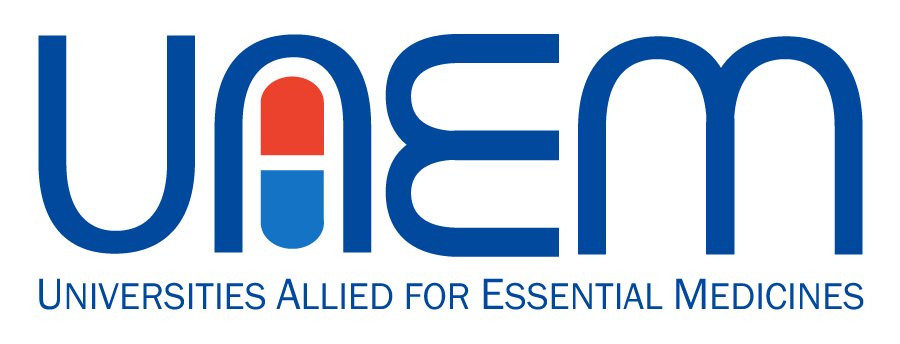Canadian U15 Universities ignore access to medicines.
U15 Averages a “D” in the new Canadian University Report Card.
PRESS RELEASE:
For Immediate Release
Press Contact: justin@uaem.org
May 1st, 2023 — MONTRÉAL, Q.C.—Universities Allied for Essential Medicines (UAEM) has published its 2023 Canadian University Report Card: Global Equity in Biomedical Research. U15 universities averaged a “D” overall. This is marginally higher than the average in the recent 2020 US UAEM University Report Card, where US institutions averaged a “D-.”
This report seeks to characterize and publicize the biomedical research and development (R&D) policies and practices of the Canadian U15 universities, a collective of the country’s most prominent research universities, with a specific focus on how these R&D practices implicate access to medicines worldwide.
“The research footprint of the U15 is massive, and it’s critical that those universities are stewarding biomedical research in a way that preserves access and addresses the world’s greatest needs. Today we declare that they are coming up short,” said Justin Mendoza, MPH, Executive Director of UAEM North America. The U15 conducts approximately 8.5 billion dollars worth of research annually[1]. Given the research products and funding of the U15, it is essential to maximize the impact this research has on health in Canada and across the world.
While Canadian universities are successful in discovering medicines through the public funding they receive, they often do not promote drug accessibility in the medicines discovered on campus.
“Universities have the power to promote accessibility in the medicines they discover through access-driven licensing agreements. In our report, we highlight real-world examples of these agreements and the need for these exceptional agreements to become the norm at the U15“ said Max Crosby, student leader for UAEM McGill.
The Canadian U15 universities’ research practice and policy were analyzed through analysis of five key categories: Access, Innovation, Empowerment, Transparency, and COVID-19 response.
The highest scorer was the University of British Columbia, which received a “B.” The University of Alberta and McGill University rounded out the top 3, scoring a “C+” and “C” respectively. The report card was bottom-heavy, with 6 universities receiving failing grades.
“Unfortunately, we saw many universities backslide on their practices in this latest version of our report card. It is important for the grades given to reflect these trends; prioritizing accessibility and global health equity requires purposeful and continuous action and these universities must be held accountable for following through on their commitments to create equitable R&D policies,” said Celine Huang, student leader at UAEM McGill.
Overall, universities’ scores in the Access section of the UAEM University Report Card were the weakest, with the Canadian U15 universities averaging an F in that section. The Access section examined how universities promote access to the medicines they patented and the research results of the study at their campuses. Given that 5.3 billion dollars of public funding were used by the U15 to conduct this science, it is imperative that these technologies and research findings are available to the public[2].
Below are some of the key findings from the report:
Less than half of all university biomedical licensing agreements established in the past two calendar years (January 1, 2019, to December 31, 2020) are non-exclusive (48.9%), meaning that a majority of medicines developed at U15 universities may not be accessible in lower- or middle-income countries.
Since 2010, Only one university, the University of British Columbia, has submitted a license to the Medicines Patent Pool (MPP) or World Intellectual Property Organization (WIPO) for protected intellectual property status for medicines treating HIV, hepatitis C, malaria, tuberculosis, neglected diseases, or other patented essential medicines in low- and middle-income countries.
While all Canadian universities publicly acknowledge the importance of open-access publications, less than half of biomedical publications at all Canadian universities were in open-access journals or were available as open-access publications over the past two calendar years.
Despite the fact that in the 2021 census, 1.8 million people identified as indigenous (about 5% of the Canadian population), U15 universities have neglected indigenous health research[3]. In fact, only .0025% of publications from Canadian U15 universities touched on indigenous health or indigenous health strategies in the past two calendar years.
Only 2 Canadian universities, Université de Montréal and University of Waterloo, published all of their clinical trial results, and summary results, for clinical trials completed in the past 2 calendar years.
Although data collection occurred during the peak of COVID-19 outbreaks and public response, the following universities made zero public commitments to equitable COVID-19 biomedical licensing. This means there will be no protection for access or affordability of any COVID-19 medicine or health technology developed on these campuses.
Dalhousie University
McMaster University
Queen’s University
Université Laval
Université Montréal
University of Alberta
University of Calgary
University of Manitoba
University of Ottawa
University of Saskatchewan
University of Toronto
University of Waterloo
Western University
“Access to health is an inalienable human right, and a big part of that is accessing affordable medicines, so we must address the issue at its roots–the universities largely developing life-ensuring drugs. By providing a quantitative evaluation of universities’ R&D practices and explicitly showing where the universities can improve, we hope to push for more inclusive practices and conscious decision-making to increase access to life-saving medicines.” - Amanda Frederiksen Leloup, student leader at UAEM McGill.
Our 2nd edition of the Canadian Global Health report card can be accessed online at https://newcanada.globalhealthgrades.org/ which features user-friendly changes reflective of the new grading scheme and a thoroughly detailed methodology section.
###
[1] About us [Internet]. U15 Group of Canadian Research Universities. 2022 [cited 2023 Mar 13]. Available from: https://u15.ca/about-us/
[2] Spending on research and development in the higher education sector, 2020/2021 [Internet]. Statcan.gc.ca. 2022 [cited 2023 Feb 24]. Available from: https://www150.statcan.gc.ca/n1/daily-quotidien/221209/dq221209d-eng.htm
[3] Government of Canada, Canada S. 2021 Census of Population – Data products [Internet]. Statcan.gc.ca. 2021 [cited 2023 Mar 13]. Available from: https://www12.statcan.gc.ca/census-recensement/2021/dp-pd/index-eng.cfm
